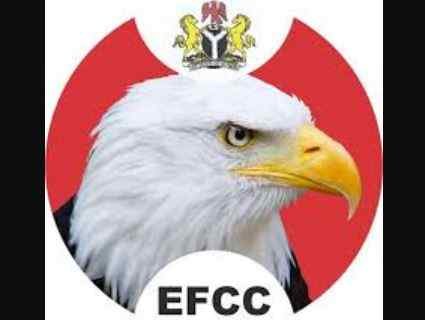The Economic and Financial Crimes Commission (EFCC) has several departments, which Include the Legal and Prosecution Department, the Department of Investigations (formerly Department of Operations), and the Department of Ethics and Integrity (formerly Department of Internal Affairs).
Additionally, the EFCC has 14 Zonal Commands that have been upgraded to the status of departments, each headed by a Director. However, here are the notable departments of EFCC In Nigeria:
READ ALSO: How To Carry Out NAFDAC Registration? (2024 Step-By-Step Guide)
Legal And Prosecution Department
The Legal and Prosecution Department of the Economic and Financial Crimes Commission (EFCC) is one of the departments of EFF in Nigeria.
This department plays a part in fighting financial crimes in Nigeria. They handle cases involving different laws like the Money Laundering Act and the Advance Fee Fraud Act.
One of their main responsibilities is to take offenders to court, ensuring they face the consequences for their illegal actions. They also provide legal advice to other EFCC units during investigations to make sure all actions are within legal boundaries.
In addition to prosecuting offenders, the department plays a part in recovering assets. If someone is found guilty of financial crimes, the department makes sure they reclaim any assets that were obtained through illegal activities.
However, the department doesn’t work alone. It collaborates with other law enforcement agencies and regulatory bodies.
Department Of Operations (Now Department Of Investigations)
The Department of Investigations, formerly known as the Department of Operations, is a key part of the Economic and Financial Crimes Commission (EFCC) in Nigeria.
This department also fights economic and financial crimes in the country. It handles investigations into different types of financial crimes, such as advance fee fraud, money laundering, cybercrimes, insider trading, tax evasion, and corruption.
The team at the Department of Investigations collects evidence, interviews witnesses, and builds strong cases against people and organizations suspected of these crimes.
They cooperate closely with the Nigerian Police Force, the judiciary, and other relevant agencies to make sure those who commit these crimes face justice.
Besides investigating crimes, this department also focuses on preventing and detecting offenses as outlined in the EFCC Act. They arrest suspects, investigate their assets, and track any money or property linked to their crimes.
The department also handles cases related to extradition and international cooperation in criminal matters involving financial offenses.
READ ALSO: What Is The Full Meaning Of NAFDAC And Their Functions?
Department Of Internal Affairs (Now Department Of Ethics And Integrity)
The Department of Ethics and Integrity, which was previously known as the Department of Internal Affairs is also one of the notable departments of the Economic and Financial Crimes Commission (EFCC) in Nigeria.
Its main responsibility is to ensure that everyone in the EFCC acts ethically and with integrity. They do this by creating and enforcing rules about how staff should behave.
The department also provides training for EFCC staff to help them understand ethical issues and the importance of honesty in their work.
In addition to training, the Department of Ethics and Integrity keeps an eye on whether ethical standards are being followed.
They investigate any reports of misconduct or violations, aiming to ensure that all actions by EFCC members are fair and just.
Asset Forfeiture Department
The Asset Forfeiture Department of the Economic and Financial Crimes Commission (EFCC) function is to handle the seizure and forfeiture of assets believed to come from criminal activities.
When the department suspects that certain assets are linked to crime, it traces and seizes them. This involves getting temporary court orders that allow the EFCC to take control of these properties while they continue their investigation.
Once a person is convicted of a crime, the department then seeks final court orders to permanently take away those assets. The department also manages the sale of these seized assets through public auctions.
Additionally, the Asset Forfeiture Department collaborates with other law enforcement agencies to improve the recovery of assets.
They work together under the Proceeds of Crime (Recovery and Management) Act, which guides their efforts in managing and recovering stolen or illegally obtained assets.
READ ALSO: How To Know A Fake NAFDAC Number?
Department Of Security And Chief Security Officer
The Department of Security within the Economic and Financial Crimes Commission (EFCC) keeps the agency and its staff safe.
This department makes sure that the EFCC’s operations, personnel, and sensitive information are secure. Led by the Chief Security Officer (CSO), this department has several key roles.
First, it assesses risks to spot any potential security threats that could affect the EFCC’s work. This prepares and protects against possible issues before they become problems.
The CSO also ensures the safety of EFCC officers, especially when they are dealing with high-risk situations related to financial crimes.
Keeping personnel safe during investigations is a major priority. The department sets up security measures to protect EFCC offices and facilities, which include preventing unauthorized access and safeguarding sensitive materials from being compromised.
In addition to these tasks, the Department of Security collaborates with other law enforcement agencies like the Department of State Services (DSS).
Also, if there is a security breach or emergency, the department manages the situation by coordinating responses and handling crises.


Good evening sir this a secret complaint I’m laying there’s this boy that stays in awka in enugu agidi awka at nomu he bully’s his wife’s cheats on her and still locks her outside the cold at times pls sir or man this man need to be kept behind baars 🙏🙏
His into fraudulent activities azaman I think so 🙏🙏🏿 he starves her beats her cause he feels he has money I’m not regretting reporting him to the authorities 🙏🏿 pls save a soul